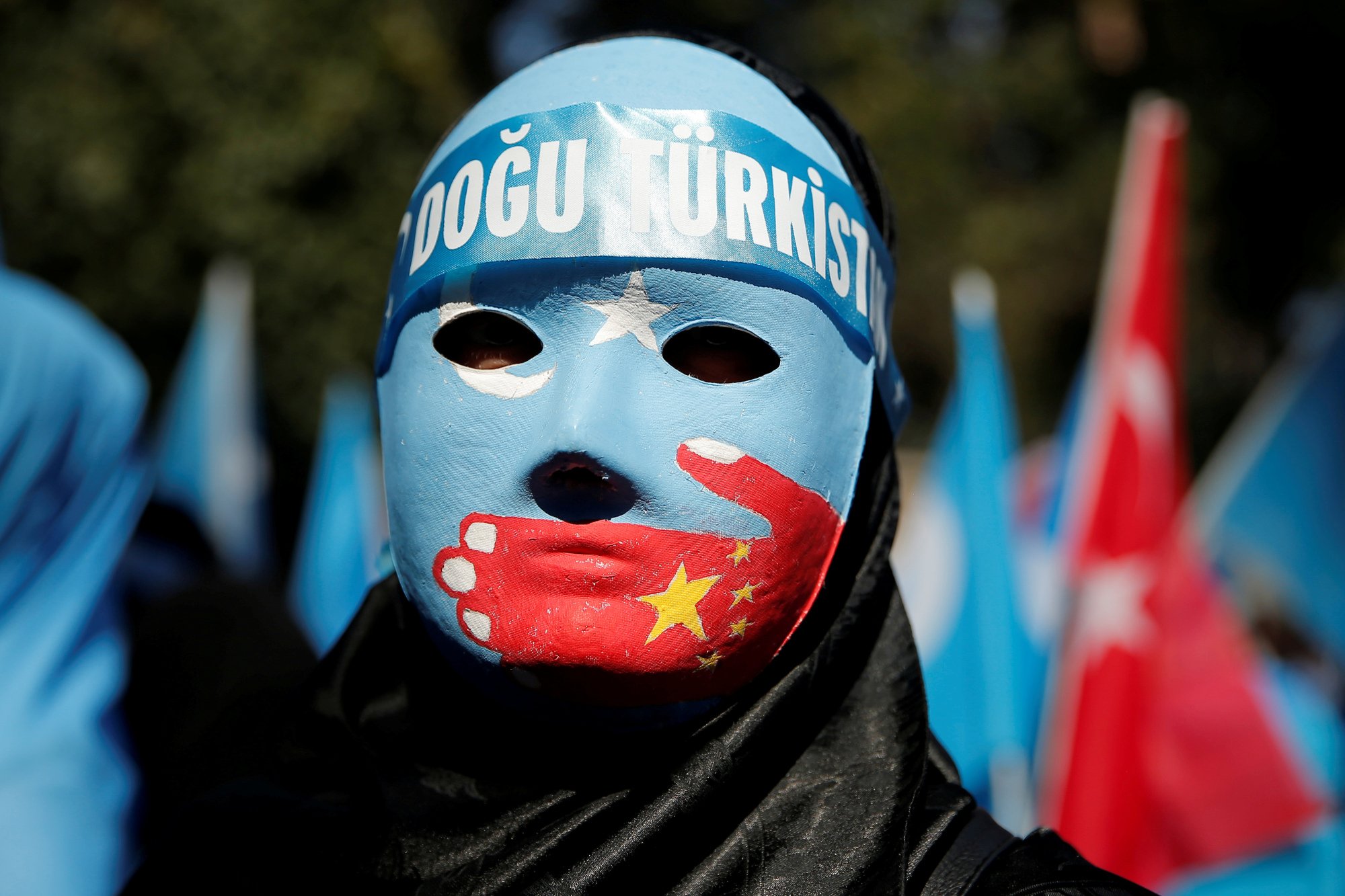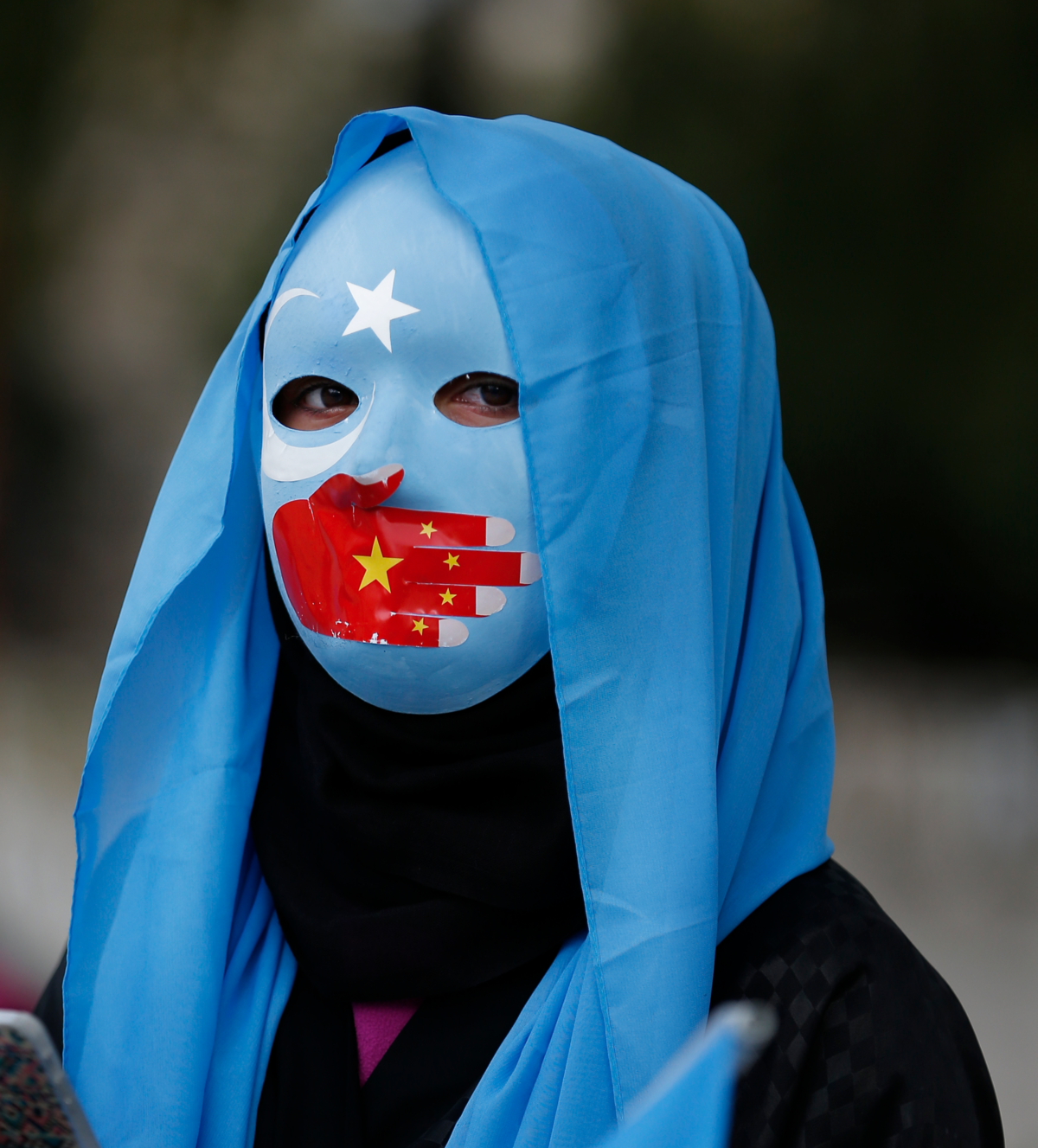Generation-F is an independent, non-partisan initiative. Any opinion expressed in articles is a representation of the author and not the initiative itself.
Silenced and Sterile: A Xinjiang Reproductive Tragedy
Serena Attieh
September 5, 2023
The Chinese government is the victim of allegations and reports of its usage of coerced contraceptives to limit the reproduction of an ethno-religious group in its Xinjiang Uyghur Autonomous Region (XUAR) province: Uyghur Muslims.
Introduction
Every action carries inevitable repercussions. Nature is an indomitable force that subdues human desires. Throughout the years, mankind has progressed and refined its scientific arsenal to defy limitations and manipulate fate. In the realm of human reproduction, the scientific field has undergone remarkable evolution through the creation of innovative methods, such as IUD (Intrauterine Devices) insertions, contraception, sterilization, etc. These approaches prevent pregnancy either temporarily or permanently and empower families to make informed decisions about their futures, whilst ensuring precise family planning. Regrettably, a new, adverse usage for the anti-reproduction procedures and devices has emerged: population control. The term refers to a government-mandated program that orchestrates the usage of coerced sterilization, compulsory IUD insertions in women, forced vasectomies, and mandatory contraception to involuntarily sterilize a certain group of people. The Chinese government, for instance, is the victim of allegations and reports of its usage of coerced contraceptives to limit the reproduction of an ethno-religion in its Xinjiang Uyghur Autonomous Region (XUAR) province: Uyghur Muslims.
The Uyghurs are a Sunni, predominantly Turkic-speaking ethnic group with an ancient cultural and historical heritage. A number of witnesses accused Xinjiang authorities of administering unknown drugs and injections to women in detention, forcibly inserting intrauterine contraceptive devices (IUDs) prior to detainment, coercing women to undergo surgical sterilization, and punishing persecuted women for birth control violations (Zenz, 2020). The PRC’s government has cited multiple concerns of alleged religious extremism and cultural separatism in the Xinjiang region, and claims that any claims of human rights abuses and notably reproductive abuses are a Western attempt to negatively portray Chinese policies and are merely overstated propaganda. Any governmental measures taken in the XUAR region have been justified as a precaution and a means to crackdown on terrorism and extremism in the region. The Chinese government has declined any requests for a private or cooperative investigation by the international community in the area, claiming that a so-called “investigation with the presumption of guilt” is being used as an excuse for Western nations to maneuver political matters in China and exert their influence on the region, which has sparked the concern of the global community (Raycraft, 2021). Despite international efforts, the Chinese denial of the matters persists, refuting any accusation of genocide. This raises a crucial inquiry: How do the political implications of the alleged reproductive abuses in the Chinese Xinjiang province extend both globally and within the nation?
Far-Reaching Implications…
The reproductive abuse allegations against China have placed its government on a pedestal where its policies are being scrutinized by the global community. The issue has placed a considerable strain on Chinese relations with other nations as they question the PRC’s legitimacy and power in international communities and leagues. Most of these countries have enforced economic sanctions on the PRC until it complies with global demands. Lawmakers from a coalition of 35 countries, including the UK, EU, Australia, Canada, and India, are beseeching their respective stakeholders to implement blacklists preventing business-makers from affiliating with companies tied to the reported human and reproductive abuses in China's Xinjiang Uygur autonomous region (Bray, 2022). Throughout the years, the United Nations has lacked immediate, formal action in
regards to the allegations and has not recognized the issue as genocide, yet is alarmed by the reported governmental measures taken in the province (McCarthy, 2022). The international community has condemned the PRC’s government for its persistent and perpetual denial of its humanitarian crimes and its lack of formal responses for a probe. China has been the object of scrutiny of multiple United Nations bodies in countless conferences aimed at resolving the issue and alleviating the damage, as well as the target of skepticism in international forums. People from over 180 countries participated in events in which they stormed into their respective Chinese embassies in concentration camp detainee outfits such as the ones in the Uyghur camps in Xinjiang to hand over petitions, urging the PRC’s government to cease their genocidal actions. The question of the genocide of Uyghur Muslims in Xinjiang remains a raging proxy war of debates and disagreements between the West and its opposing coalitions. The European Union, the United States, Canada, the United Kingdom, among other nations have taken to diplomatic sanctions that gravely severed ties with the PRC as they await a formal concession from China to the demands of the global community.
The mass coerced sterilization of Uyghur Muslims in Xinjiang has had far-reaching ramifications on the global trade and economic relations worldwide. In response to the reports, several nations refused to be affiliated with an alleged genocide and therefore severed associations with Chinese trade. The PRC wields a significant share of the global means of production and boasts a substantial trade chain with most nations despite their respective diplomatic and political relations. The coordinated reproductive attack on Uyghur Muslims severely disrupted the minimal relationships between China and other governments, which have opted for imposing economic and trade sanctions on the PRC and every entity or individual involved with the crimes. For instance, the United States
installed proposed bans on key exports and products shipped and mass-produced in China’s Xinjiang region (BBC News, 2020). The European Union also suspended a significant trade agreement with the PRC, the EU-China Comprehensive Agreement on Investment (CAI), stating that the Chinese environment at the time was not propitious for the endorsement of the agreement (Ridgwell, 2021). Other sanctions on the Chinese people and government officials include asset freezes, travel bans, and restrictions on financial transactions, successfully cutting off Chinese people’s access to the global market and financial system. The international community hopes that the imposed restrictions will enable China to yield to its requests, for fear of enraging its people. To this day, China has not admitted fault to its actions and has instead escalated the economic tension by engaging in a tit-for-tat battle with the sanctioning countries, despite its consequential financial decline and monetary losses. The PRC’s private and public businesses and factories were ordered to halt any existing trade relations with the opposing coalition, which would foster an atmosphere of economic and financial uncertainty in the global community. Despite the necessity of the measures, government officials worldwide were still hesitant to herald an economic war with their most adamant, affordable provider, but the Chinese government’s persistence to defend itself yielded a reassessment that marked the end of most nations’ trading ties with the PRC. The economic and financial consequences of the alleged mass sterilization and forced contraceptives in Xinjiang have highlighted once again the interconnectedness of the global economy with the complexity of protecting human ethics and their right to reproductive choices, which is the international community’s first and foremost priority.
The deleterious and detrimental impact of the population control tactic in Xinjiang highlights the need for immediate action and intervention as it has multiple outrageous, harm-inflicting outcomes, and notably on the demographic and socio-economic levels. The persecuted and targeted sterilized population are primarily working-age individuals who are potentially physically and mentally harmed by the reported abuses. The international community has raised concerns that these individuals may be compelled to work against their will or under unsustainable health conditions to maintain the labor levels necessary for the mass production of goods in the PRC. For instance, brave Sedik – a then 50-year-old woman – claims she begged to be spared from the fate of another compulsory IUD, after she was left bed-ridden for months to sustain unbearable chronic pain and bleeding after previous attempts. Unfortunately, she was obligated to be sterilized at a clinic in her home city of Urumqi, under threat of imprisonment in case of resistance (France24, 2021).
"Why would they extend this to women [...] who have gone through menopause and have no way of giving birth?”
— Sedik (France24, 2021)
Sedik is proof that Chinese authorities might be committing unfathomable crimes for the sole purpose of eradicating a civilized group of people who are being cracked-down on for merely existing. Such practices not only rouse humanitarian concerns but also impact the region's labor force dynamics, potentially affecting productivity and labor market stability. The implementation of population control measures in Xinjiang also affects the country’s development and demographic on another level; the contraceptives and harsh penalties that threaten Uyghur families having more than the prescribed number of children have resulted in a decline in birth rates. Official data shows that the latter have nearly halved between 2017 and 2019 and have dropped to below zero in recent years-- the steepest drop of all Chinese provinces and regions in that time and the most drastic globally since 1950, according to a study by the Australian Strategic Policy Institute (ASPI) (Ruser & Leibold, 2021). The international community has condemned the PRC government for this steep drop in the demographic, which experts call a “demographic genocide” (Associated Press, 2020), yet Chinese officials have officially acknowledged the statistics, swiftly claiming that the sterilization is voluntary and repeatedly calling out the reports as Westernized, anti-China, fabricated lies and deliberate misinformation which aim to dismantle developing countries’ governments (Associated Press, 2021). “The rights and interests of Uyghur and other ethnic minorities have been fully protected. The so-called ‘genocide’ is pure nonsense,” was the official Chinese response to a report criticizing the government’s maltreatment of the Turkic minority in the XUAR region (Watson et al., 2020). The detrimental change in the region’s population composition will inevitably lead to long-term consequences in the labor force, both illegal and legal in Xinjiang, and will hinder the province’s economic growth and stability.
Submit your article or become a registered writer
Thus,
The alleged reproductive policies in Xinjiang have not only deeply scarred the region’s occupants but have left a profound impact on the global community and its politics. The United Nations has yet to challenge China’s lack of international cooperation and take immediate action to halt the alleged crimes against humanity occurring in Xinjiang; however, the matter of the reproductive and human rights abuses has been mulled over at numerous instances in the United Nations Human Rights Council where countries have expressed their concerns for the persecuted ethno-religion. To address the issue without breaching the sovereignty of any of the existing coalitions, cooperative investigations with the Chinese government must be orchestrated to uncover the truth and ensure accountability measures are taken and justice is restored. The reported mass sterilization practices infringe upon basic human rights and the principles of the United Nations; therefore, nations must recognize the gravity of the situation to ensure the protection of Uyghur Muslims in the province while time is still in their favor. Only in this collective effort to communicate, debate, and resolve such dilemmas lies the hope for a fairer and more harmonious world.
References
Amnesty International. (2021, October 11). China: UN must act on Xinjiang atrocities after petition shows mass global outrage. Amnesty International. https://www.amnesty.org/en/latest/news/2021/10/china-un-must-act-on-xinjiang-atrocities-after-petition-shows-mass-global-outrage/
Associated Press. (2020, June 30). China cuts Uighur births with IUDs, abortion, sterilization. The Associate Press News. https://apnews.com/article/269b3de1af34e17c1941a514f78d764c
Associated Press. (2021, April 20). China Rejects Accusations of Abuses in Xinjiang. VOA News. https://www.voanews.com/a/east-asia-pacific_voa-news-china_china-rejects-accusations-abuses-xinjiang/6204808.html#:~:text=Accusations%20of%20forced%20labor%20or%20detentions%20in%20the,Xinjiang%E2%80%99s%20stability%20and%20security%20and%20curb%20China%E2
BBC News. (2020, September 9). Xinjiang: US to block key exports from Chinese region. BBC News. https://www.bbc.com/news/business-54067492
BBC News. (2021, March 22). Uighurs: Western countries sanction China over rights abuses. BBC News. https://www.bbc.com/news/world-europe-56487162
Bray, C. (2022, January 26). South China Morning Post. Lawmakers from UK, EU and other countries call for blacklists over Uygur treatment in Xinjiang. https://www.scmp.com/news/china/article/3164729/lawmakers-uk-eu-and-other-countries-call-blacklists-over-uygur-treatment
Davidson, H. (2022, September 23). China ready for ‘fight’ over international action on Xinjiang human rights abuses. The Guardian. https://www.theguardian.com/world/2022/sep/23/china-ready-for-fight-over-international-action-on-xinjiang-human-rights-abuses
France24. (2021, May 19). Forced sterilisation and Xinjiang's shrinking population. France 24. https://www.france24.com/en/live-news/20210519-forced-sterilisation-and-xinjiang-s-shrinking-population
McCarthy, S. (2022, September 1). China may have committed ‘crimes against humanity’ in Xinjiang, UN report finds. CNN News. https://edition.cnn.com/2022/08/31/asia/un-xinjiang-china-bachelet-report-intl/index.html
Raycraft, R. (2021, March 29). China welcomes UN visit to Xinjiang, but opposes investigation. CBC News. https://www.cbc.ca/news/politics/china-un-xinjiang-human-rights-1.5968002
Ridgwell, H. (2021, May 21). EU Suspends China Trade Deal as Tensions Grow Over Xinjiang, Hong Kong. VOA News. https://www.voanews.com/a/east-asia-pacific_voa-news-china_eu-suspends-china-trade-deal-tensions-grow-over-xinjiang-hong-kong/6205673.html
Ruser, N., & Leibold, J. (2021, May 12). Family De-planning: The Coercive Campaign to Drive Down Indigenous Birth-rates in Xinjiang. Australian Strategic Policy Institute.
Watson, I., Wright, R., & Westcott, B. (2020, September 21). Xinjiang government confirms huge birth rate drop but denies forced sterilization of women. CNN. https://edition.cnn.com/2020/09/21/asia/xinjiang-china-response-sterilization-intl-hnk/index.html
Zenz, A. (2020, June). Sterilizations, IUDs, and Mandatory Birth Control: The CCP's Campaign to Suppress Uyghur Birthrates in Xinjiang. The Jamestown Foundation.



